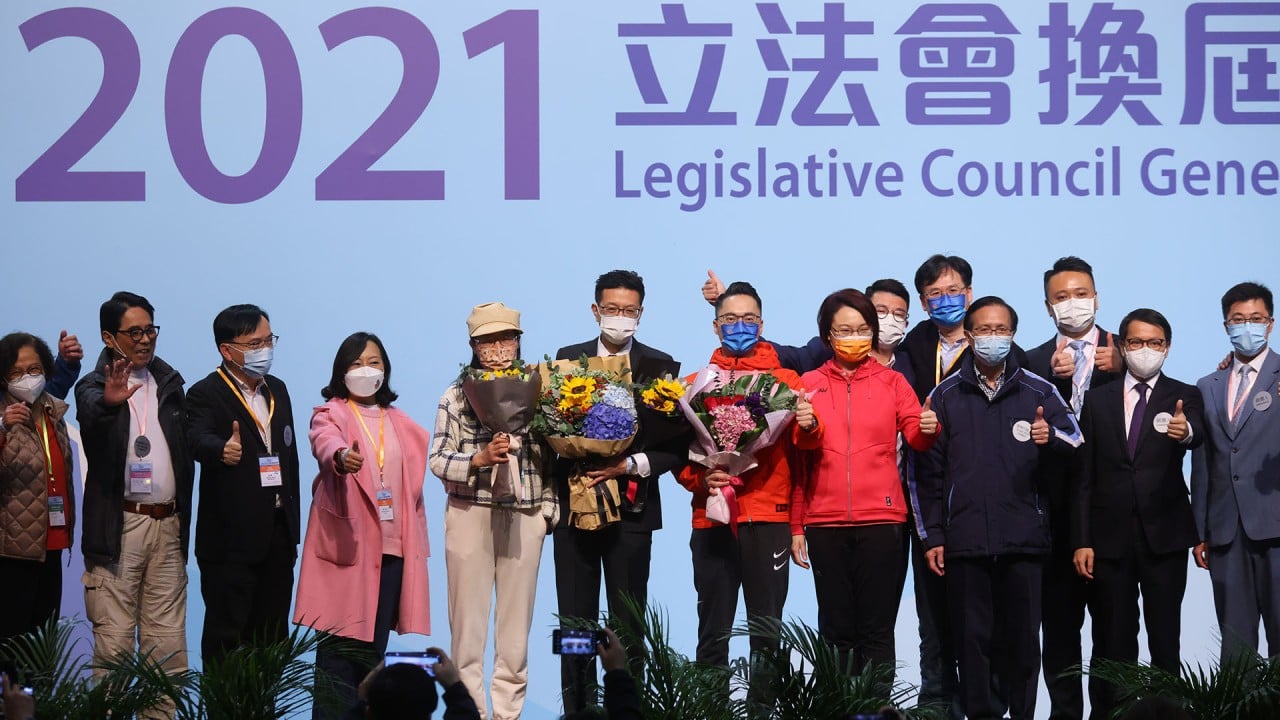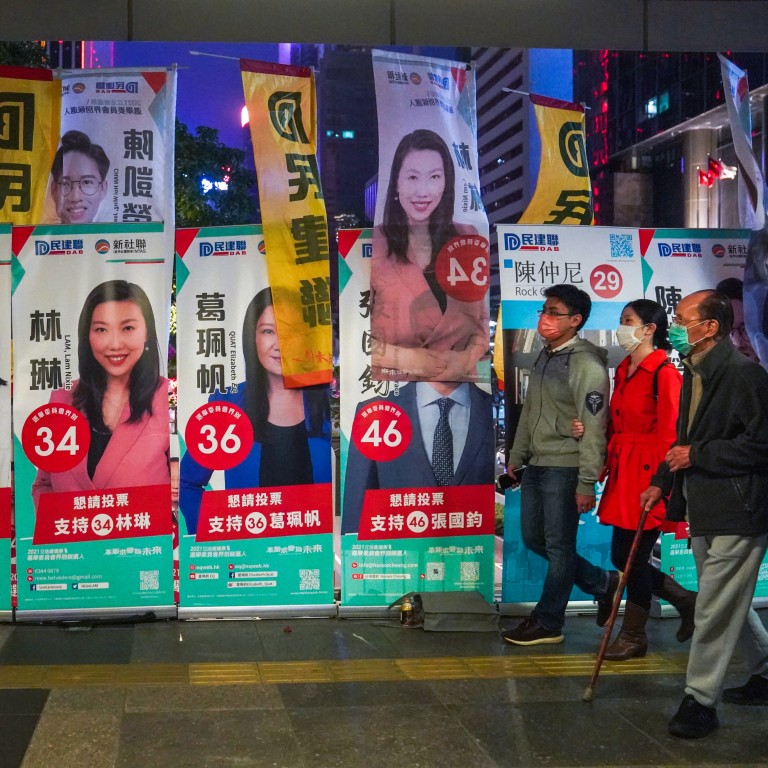
What Hong Kong election results reveal about new legislature full of ‘patriots’: three new forces could emerge to pile pressure on traditional loyalists
- Those with close links to mainland China, businessmen without strong political affiliations and academics in pro-establishment think tanks could potentially form blocs
- Among new faces, attention has swiftly turned to 10 winners with close links to mainland or state-owned enterprises
A bus captain, an electrician and former foreigners turned Chinese citizens – all of whom were candidates described by China’s top official overseeing Hong Kong affairs as embodying diversity – are not among the 90 elected in the city’s new legislature.
5 takeaways from the Hong Kong Legislative Council election 2021
In the lead-up to the election and rejecting the notion that the legislature would be a hallmark of homogeneity, Xia Baolong, director of the Hong Kong and Macau Affairs Office, used a common Chinese phrase “five lights and 10 colours” to describe how Beijing welcomed diversity in the new chamber.
So does the new Legco pass this “five lights and 10 colours” test? A review of its composition suggests three new forces could emerge among the 90 newly minted lawmakers, alongside the traditional pro-Beijing loyalists.
The three blocs are elites with close links to mainland China, businessmen without strong political affiliations and academics from pro-establishment think tanks.
While critics denounced the lack of diversity in political views, with at least one describing the poll as “a performative selection ritual” to create an echo chamber, some analysts insisted the new line-up reflected a new type of representation able to work with the executive branch to tackle the city’s deep-seated problems.
Among the new faces, attention has swiftly turned to the 10 winners with close links to mainland or state-owned enterprises.
Pro-establishment camp makes nearly clean sweep in Hong Kong’s Legco poll
The seat in the new commercial (third) functional constituency, representing the interests of mainland enterprises, went to Erick Yim Kong, chief operating officer and general manager of China Merchants Port, whose parent company was a conglomerate established in 1872.
Speaking to the Post, the 49-year-old said he felt proud to be part of the “historical breakthrough” to bring a new voice into Legco, representing an important force in the city’s economic development that had long been under-represented.
“There have been misunderstandings about us. We are not representing the interests of the mainland, as many mainland enterprises took root in Hong Kong,” he said.
“We hope to help mainland enterprises better integrate with Hong Kong, and help Hong Kong better integrate with the national development plan.”
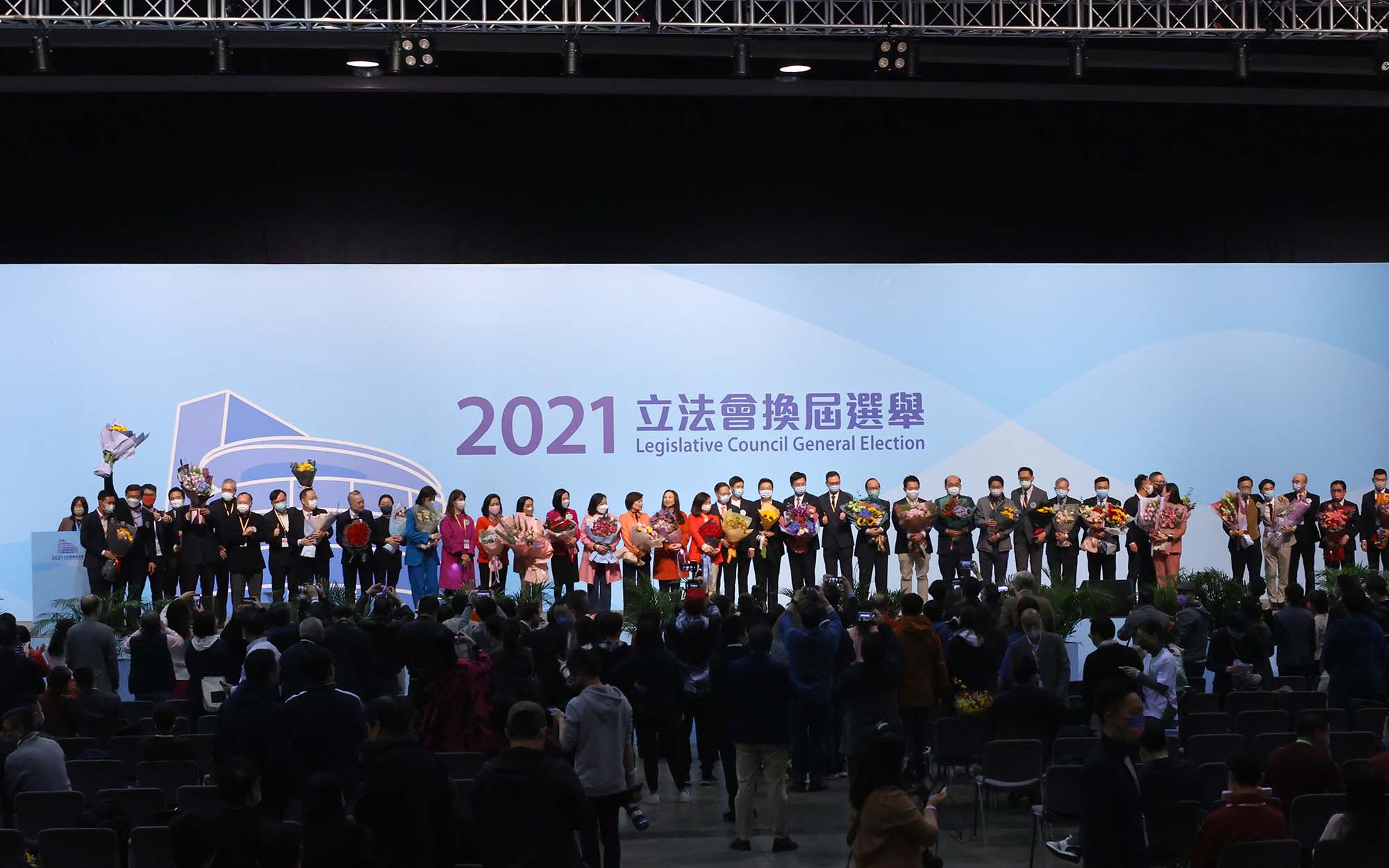
Tourism sector winner Yiu Pak-leung, 47, deputy general manager of China Travel Service (Hong Kong), also caught analysts’ attention. Mainland-linked candidates also gained a foothold in a geographical constituency, with mainland-born engineer Gary Zhang Xinyu, 32, from New Prospect for Hong Kong, defeating solicitor Wilson Shum Ho-kit, 43, who represented the rural faction in the New Territories North.
Several candidates running in the new Election Committee constituency, who were voted in by 1,448 members, secured comfortable wins. Simon Lee Hoey, 44, from state-owned enterprise China Resources Group and Bocom International Holdings chairman Tan Yueheng, 58, won handsomely, collecting 1,308 and 1,245 votes respectively.
The second new emerging force that caught many by surprise was the independent business faction which unseated two veteran incumbents affiliated with pro-Beijing parties. Their success reflected a desire among voters to try new ways of pushing for their sectors.
In the textiles and garment sector, Sunny Tan, 48, executive vice-president of apparel and accessories manufacturer Luen Thai International Group, unseated Liberal Party leader Felix Chung Kwok-pan, 58, who had held the seat since 2012.
Robert Lee Wai-wang, 41, the chairman of the Hong Kong Securities Association who unseated Christopher Cheung Wah-fung in the financial services sector by a wide margin, said those in the trade “have been yearning for a change”, and that he hoped to unite the industry and diversify its development in the future.
Apart from that pair, many victors were also independent candidates who won with their profile and campaign. They included Chan Yuet-ming, a 49-year-old member of North District Council and a female chief of Ta Kwu Ling rural village, who vowed to “reflect voices of the grass roots” with the 1,187 votes she received from the Election Committee.
While Xia said the central government embraced diversity, the defeat of several prominent figures who failed to make the cut in the Election Committee constituency stacked with pro-Beijing members left some doubting his claim.
Hong Kong pro-establishment camp can now ‘do anything’, defeated moderates warn
Among the 11 losers were entertainment tycoon Allan Zeman, former civil servant Mike Rowse, Taiwanese-born Phoenix TV presenter Vie Tseng Chin-I and bus captain Choy Wing-keung.
Tseng said she was handicapped by not having the same level of resources available to her rivals. “This has nothing to do with the system,” she said.
Rowse told the Post he was “disappointed” and said individual parties might have “drawn up their own lists” so as to coordinate with others for mutual benefit.
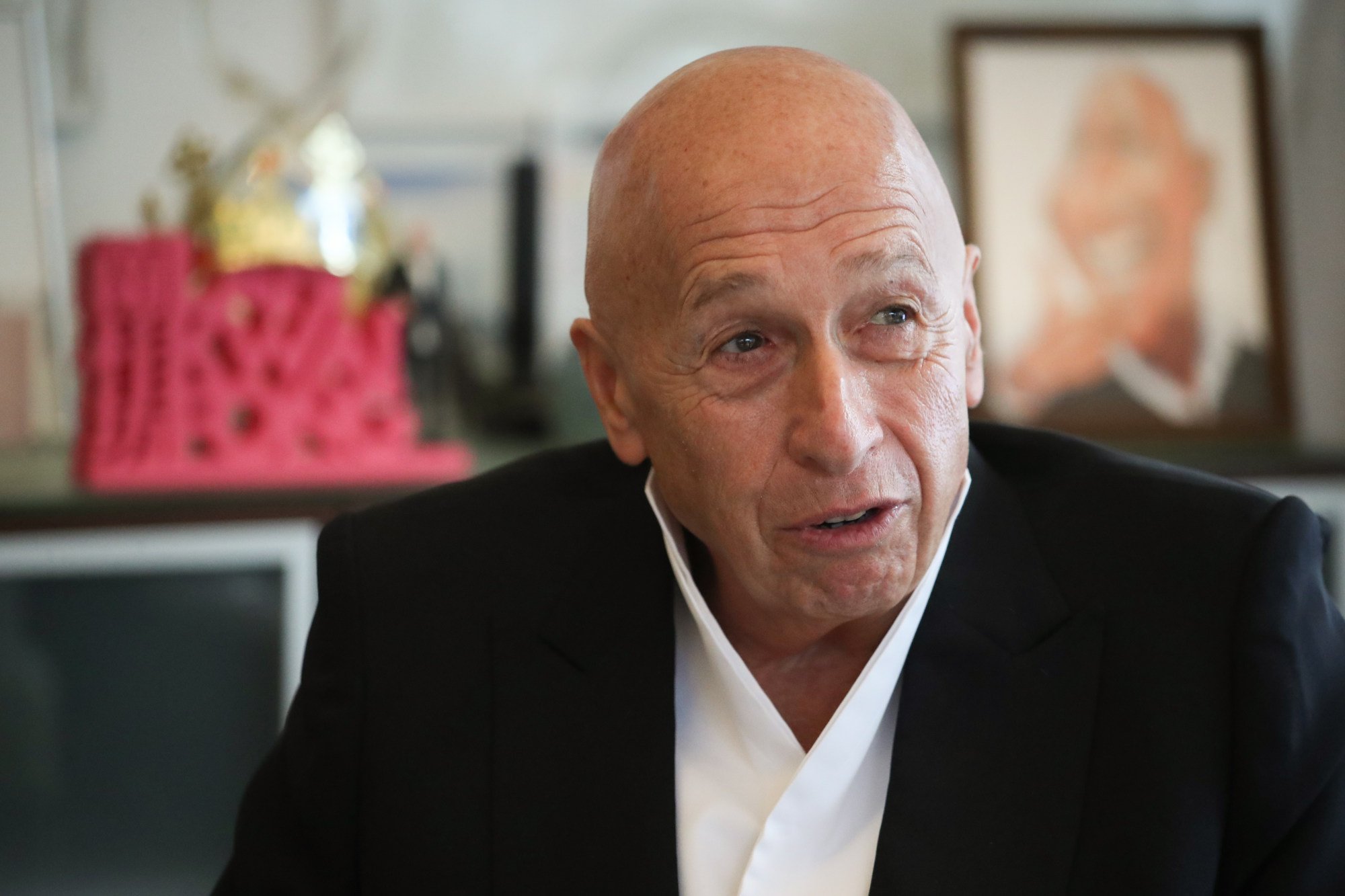
Zeman suggested his inability to speak much Cantonese might have been a factor, preventing him from getting his message across, but disagreed with speculation it was a sign of a lack of tolerance of different races under the new electoral system.
“In general, it’s pretty diverse,” he told the Post. “You have professors, researchers and influencers.”
One of the new forces Zeman referred to was the at least six elected academics from think tanks – all in the Election Committee constituency.
Among them were Chow Man-kong, associate director of the Economic Policy Research Institute at Lingnan University, mainland-born New World Development research head Wendy Hong Wen, 46, and Stephen Wong Yuen-shan, 45, head of the Public Policy Institute of the Our Hong Kong Foundation think tank.
“My victory showed that my friends in the Election Committee are willing to support young people like me, who are willing to move up from the grass roots class, and take part in improving society,” Chow said.
30.2 per cent turnout in Hong Kong’s first Legco poll since Beijing overhaul
Terence Lin Chiu-fai, director of think tank the Beijing Institute of Hong Kong and Macau Scholars, also studied the composition of the new Legco and found that among the 40 lawmakers picked by the Election Committee 28 per cent had a doctoral degree and 30 per cent were from the business sector.
He noted that these candidates’ approach was very different from that of politicians in the mainstream parties. “Rather than blaming the government for Hong Kong’s problems, they are offering substantial solutions,” he said.
Asked to comment on the mainland-linked candidates, Lin said people should not categorise them by their place of birth, as many of them saw Hong Kong as home for a long time.

Citing Zhang as an example, Lin said even though the winner had strong mainland connections, he had not been advocating for mainlanders’ rights, but “livelihood issues that most local residents cared about”.
Despite the emergence of the new forces, critics said Hong Kong people would remain sceptical about their ability to make a difference, judging from their disinterest as reflected in the record low voter turnout of 30.2 per cent.
“Hongkongers clearly did not buy the sham ‘patriots-only’ election on Sunday – with an overwhelming majority of them sitting out and boycotting the rigged Legco elections that were nothing more than a performative selection ritual fully controlled by Beijing,” said Samuel Chu, president of Washington-based advocacy group Campaign for Hong Kong.
Among those who voted, the reliance on known parties was evident, judging by the big gains of the traditional groups.
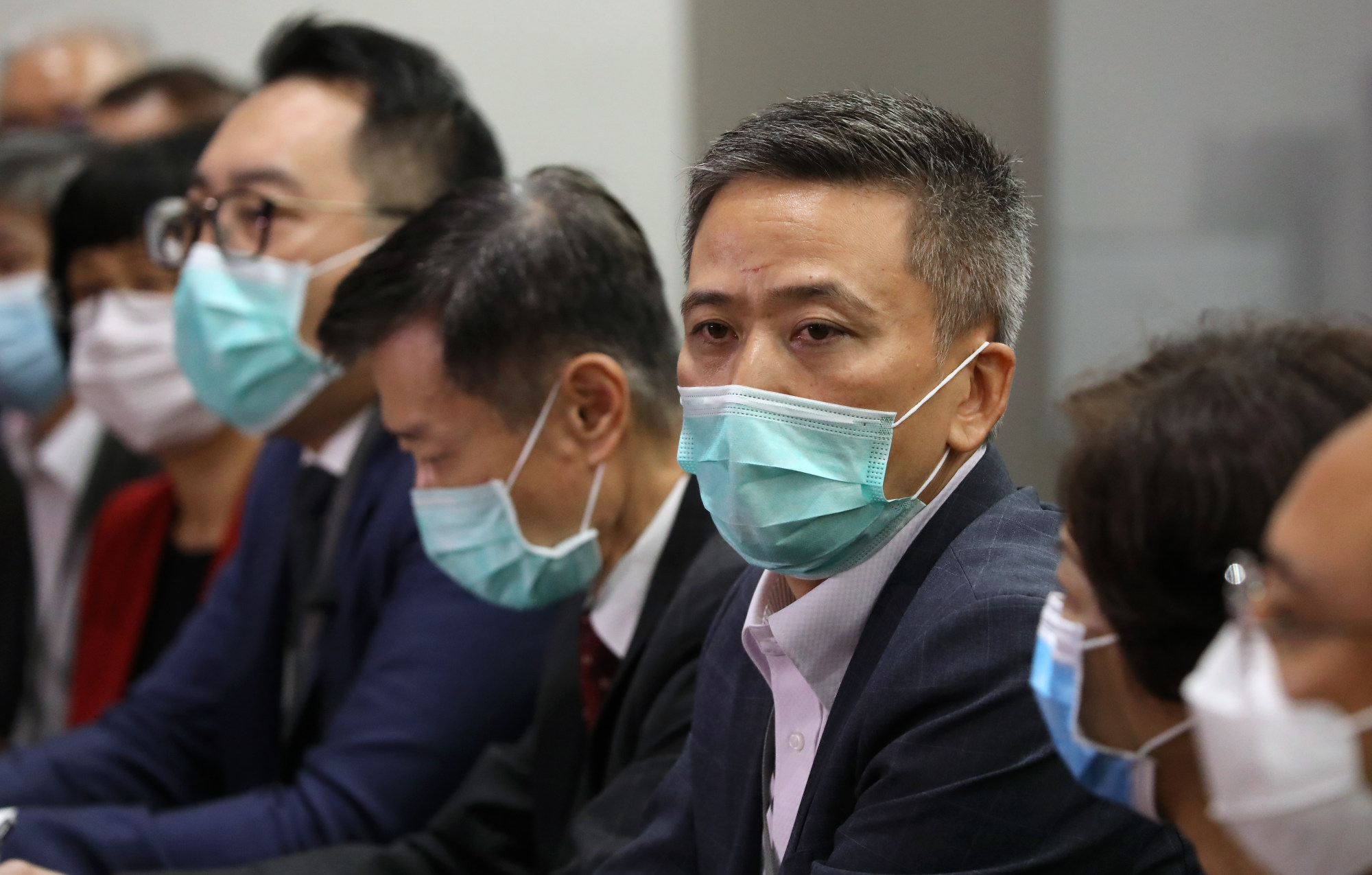
Professor Song Sio-chong, of Shenzhen University’s Centre for Basic Laws of Hong Kong and Macau, said the results showed that under the new electoral system, it was candidates with political affiliations or those with a clear track record of being loyalists who would enjoy an edge.
“Pro-Beijing parties such as the DAB and FTU definitely have the advantage. If you do not have a party, you need to be famous for being patriotic to win a seat, especially in the Election Committee sector,” he said.
All eyes are now on how the new forces and traditional players would co-exist, cooperate and compete in the legislature. Analysts suggested that the new forces would be giving the traditional pro-Beijing loyalists, including those in the big parties like the DAB, a run for their money in giving ideas and critiquing government policies.
Song was also concerned whether governance would improve with a large number of new faces in Legco. He feared the new legislators would need time to familiarise themselves with various policy issues, and the government’s work could become easier in the coming year.
Lau Siu-kai, vice-president of semi-official think tank the Chinese Association of Hong Kong and Macau Studies, disagreed with Song.
“I think it will be more difficult for the government’s administrative officers to work with these lawmakers because many of them don’t have political affiliation, and don’t have a unified stance,” he said.
“They were expected to form new alliances and ad hoc coalitions on issues, and could be very familiar with policies – unlike past lawmakers who were more focused on political debates.”
Lau also said the influence of political parties would diminish in Legco, while the new faces would play a more important role in helping with the city’s governance.
“It’s good for Hong Kong as there are lots of socioeconomic problems to be tackled through working closer with the mainland.”



